第79章 Chapter 26(5)
"As in the old society the generous, the just, the tender-hearted had been placed at a disadvantage by the possession of those qualities; so in the new society the cold-hearted, the greedy, and self-seeking found themselves out of joint with the world. Now that the conditions of life for the first time ceased to operate as a forcing process to develop the brutal qualities of human nature, and the premium which had heretofore encouraged selfishness was not only removed, but placed upon unselfishness, it was for the first time possible to see what unperverted human nature really was like. The depraved tendencies, which had previously overgrown and obscured the better to so large an extent, now withered like cellar fungi in the open air, and the nobler qualities showed a sudden luxuriance which turned cynics into panegyrists and for the first time in human history tempted mankind to fall in love with itself. Soon was fully revealed, what the divines and philosophers of the old world never would have believed, that human nature in its essential qualities is good, not bad, that men by their natural intention and structure are generous, not selfish, pitiful, not cruel, sympathetic, not arrogant, godlike in aspirations, instinct with divinest impulses of tenderness and self-sacrifice, images of God indeed, not the travesties upon Him they had seemed. The constant pressure, through numberless generations, of conditions of life which might have perverted angels, had not been able to essentially alter the natural nobility of the stock, and these conditions once removed, like a bent tree, it had sprung back to its normal uprightness.
"To put the whole matter in the nutshell of a parable, let me compare humanity in the olden time to a rosebush planted in a swamp, watered with black bog-water, breathing miasmatic fogs by day, and chilled with poison dews at night. Innumerable generations of gardeners had done their best to make it bloom, but beyond an occasional half-opened bud with a worm at the heart, their efforts had been unsuccessful. Many, indeed, claimed that the bush was no rosebush at all, but a noxious shrub, fit only to be uprooted and burned. The gardeners, for the most part, however, held that the bush belonged to the rose family, but had some ineradicable taint about it, which prevented the buds from coming out, and accounted for its generally sickly condition. There were a few, indeed, who maintained that the stock was good enough, that the trouble was in the bog, and that under more favorable conditions the plant might be expected to do better. But these persons were not regular gardeners, and being condemned by the latter as mere theorists and day dreamers, were, for the most part, so regarded by the people.
Moreover, urged some eminent moral philosophers, even conceding for the sake of the argument that the bush might possibly do better elsewhere, it was a more valuable discipline for the buds to try to bloom in a bog than it would be under more favorable conditions. The buds that succeeded in opening might indeed be very rare, and the flowers pale and scentless, but they represented far more moral effort than if they had bloomed spontaneously in a garden.